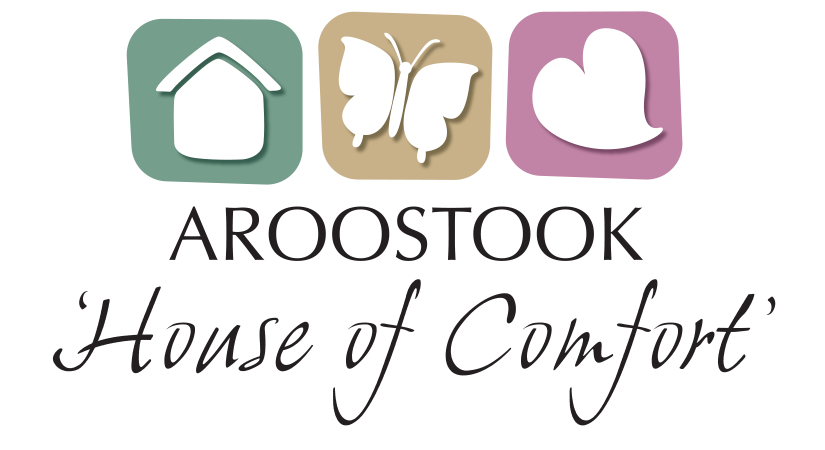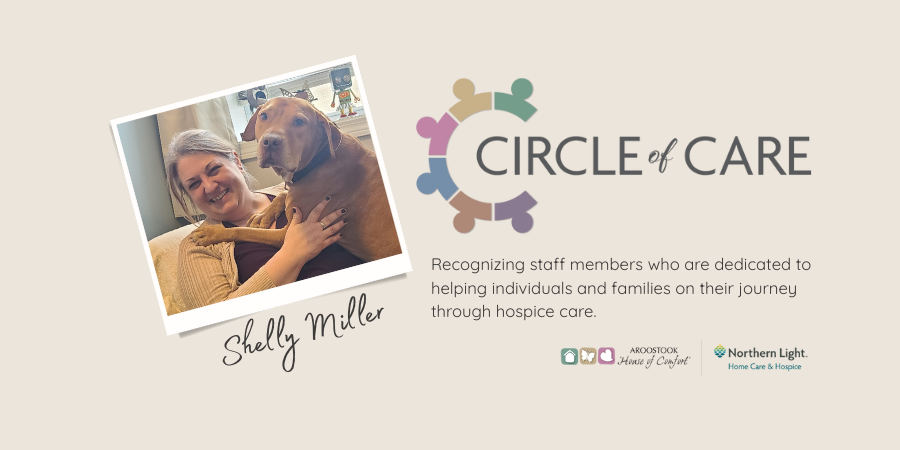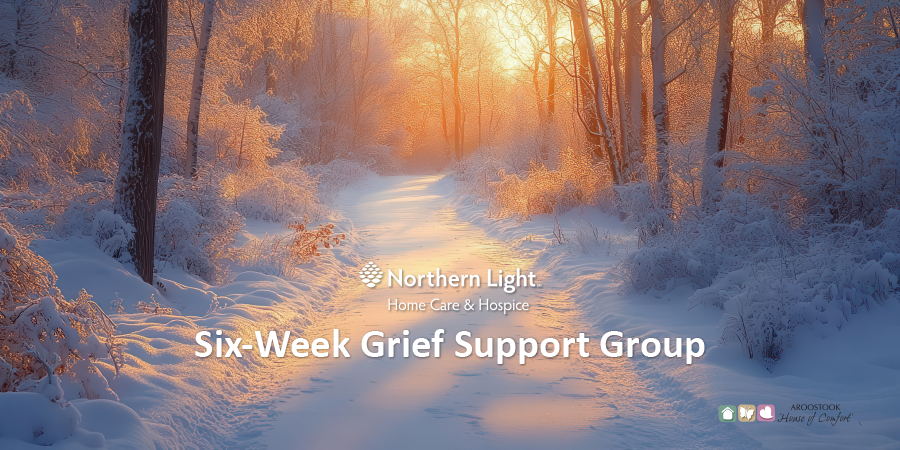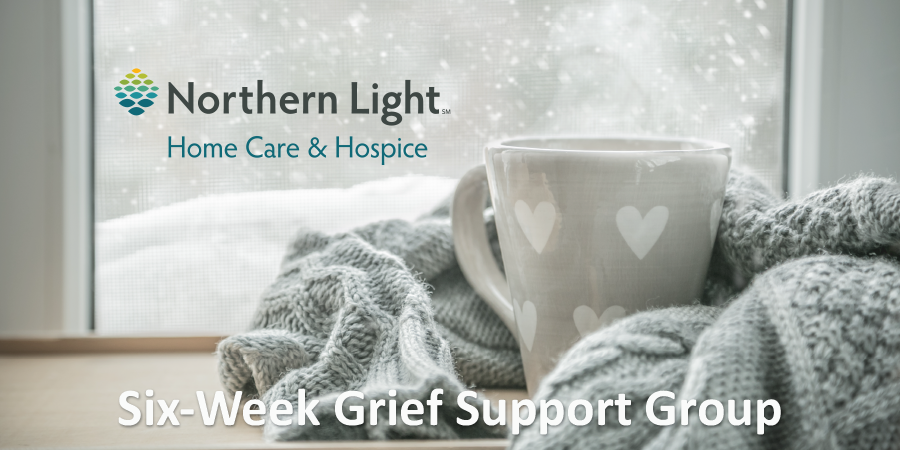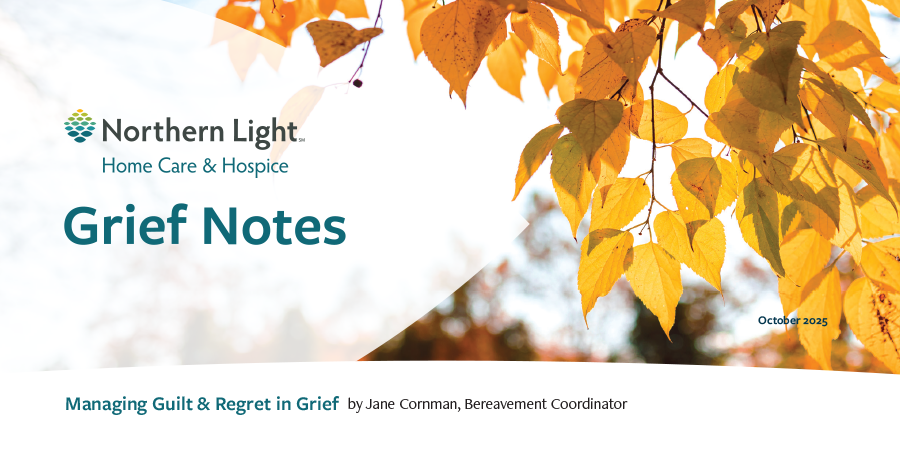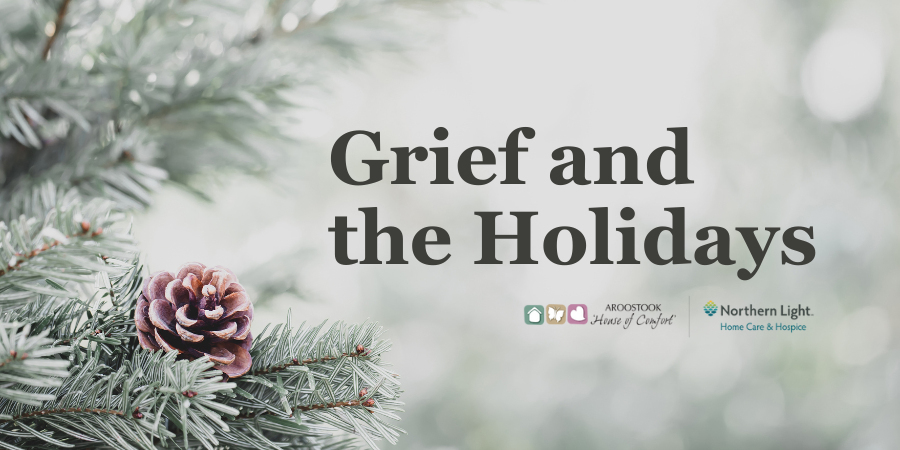Grief Notes: Facing the Daily Challenges of Grief

Facing the Daily Challenges of Grief
by Jane Cornman, Bereavement Coordinator
I used to believe that nighttime is the worst time for people who are grieving. So many people told me this, and it was a common topic in grief support groups. Then I met a woman who told me that she had no problem with evenings and nighttime, because her recently deceased spouse had a night job, and they were never together in the evening. Her worst time was in the morning, each time he failed to return home from his night shift.
Regardless of when your hard time is, the fact remains that most grieving people find that there is a time of day (or of the week, month, or year) that is particularly hard. We bereavement coordinators spend a lot of time dispensing advice for dealing with the big days: the birthdays, holidays, and anniversaries. But what about the day to day, week to week hard times that every grieving person struggles with.
First, let’s talk about what makes hard times hard. Usually, it is a combination of at least two things. It’s a time of the day or week when there was a routine involving your deceased loved one. And it’s also a time when you may naturally struggle, based on factors such as your circadian rhythms, physical health, and personality. We’ve all heard productivity experts talk about identifying our most productive times of the day for getting things done. It follows that most of us, even if we’re not grieving, have times of the day when we’re not at our best. Combine these low times in the day with routines that incline us to miss our loved ones, and it’s a recipe for dread.
Maybe the next step, then, is to deal with the dread we feel towards our hard times. It’s helpful to pick a time of day when things are easier – those better times that productivity experts want us to use to our benefit – to plan ahead for the harder times. Waiting for a sunny day or the company of a friend might help if it sounds like this exercise will be difficult. Begin by identifying what, exactly, is so hard about your hard times. It may seem obvious, but it’s worth spelling it out: “When I have to cook dinner for one, then spend the evening alone, I feel sad and depressed. Then I can’t sleep.” Now pick it apart to gain some clarity. How do these experiences feel in my body? What is going on in the environment when this happens? What are the memories that are being repeatedly triggered? What’s so bad about feeling these feelings? It can be helpful to write these things down.
Sometimes just going through this exercise will bring enough clarity to come up with a plan for coping with the hard times. But if a solution is not obvious, then here are some ideas. First, focus on making small changes. We may not be able to control the big events in life like someone dying, but we can create small, new habits related to mindfulness and acceptance that will help. We can ask family and friends for help and companionship. We can plan new routines or treats that give us something to look forward to during the difficult times. We can give ourselves dedicated time to work through sadness and grief, knowing that it is okay to limit that time and stop after a while, also building in time to soothe and care for ourselves. We can try harder to follow all those tips we know so well about getting enough physical activity and getting enough rest, giving ourselves grace when we are inconsistent or imperfect, and continuing to try and do our best. If you are struggling with a predictable hard time that brings you dread and you need more help, please reach out to your local bereavement coordinator, named on the back of this newsletter. We are always happy to help!
Losing a loved one is one of life’s most difficult challenges. The pain can feel overwhelming, leaving you feeling isolated and misunderstood. However, you are not alone. Many others are walking a similar path, and we invite you to join a space where you can share, grieve, and find support with others who understand.
Countywide Grief Support Groups
Grief support groups will be offered throughout Aroostook County, including the Houlton area and the St. John Valley. These groups will be scheduled based on need, with a minimum of five participants required to start. If you're interested, please call or email us as soon as possible.
Six-Week Grief Support Group - Houlton
When: Thursdays, February 13 - March 20
Time: 6:00 – 7:30 PM
Where: Houlton Regional Hospital, 20 Harford Street Houlton, Center for Health Education on the 3rd floor
Cost: Free (registration required)
This group is open to anyone who has experienced the loss of a loved one. Space is limited to 12 participants, so RSVP early to secure your spot. To register or learn more, contact George McLaughlin at 207-498-9039 or gmclaughlin@northernlight.org.
One-on-One Grief Support
As your Bereavement Coordinator, I am available for individual grief support by phone or in person. To schedule a time to talk or meet, email George McLaughlin at gmclaughlin@northernlight.org or call 207-498-9039. I will respond as soon as possible.
For immediate assistance, you can also reach out to our toll-free number: 1-800-757-3326.
You don’t have to navigate this journey alone. We are here to support you.
